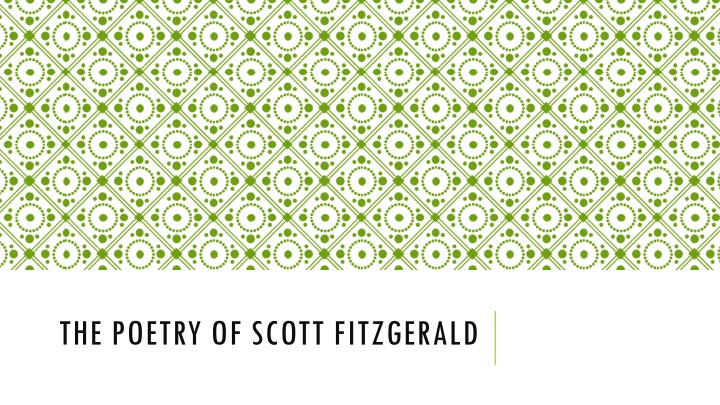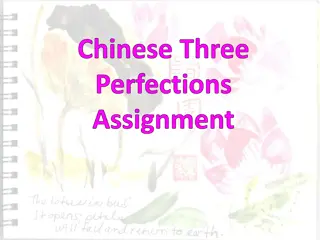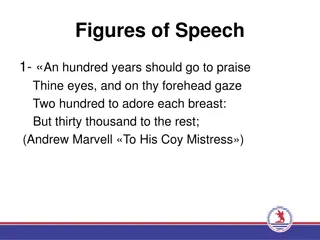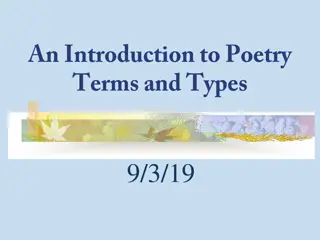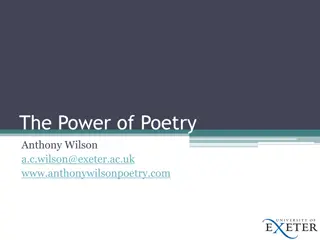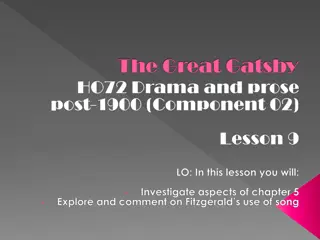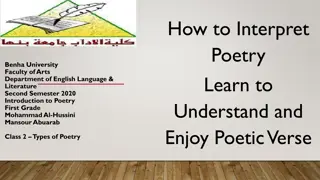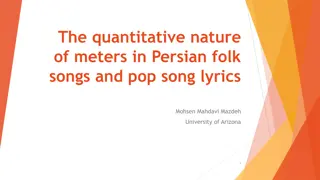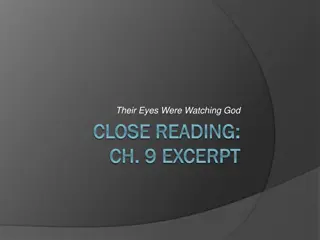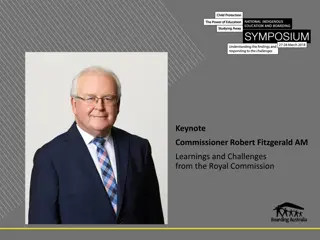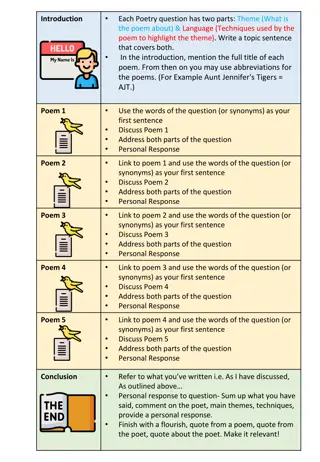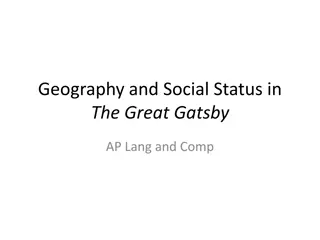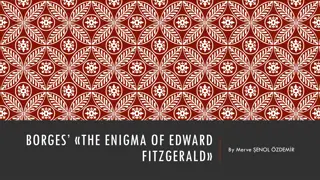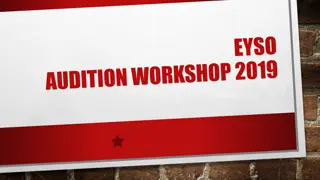The Poetry of Scott Fitzgerald: Excerpts and Reflections
Journey through Scott Fitzgerald's poetic prose with evocative passages portraying moments of longing, dreams, and contemplation. Immerse yourself in the vivid imagery and poignant reflections that capture the essence of love, loss, and the beauty of fleeting moments.
Download Presentation

Please find below an Image/Link to download the presentation.
The content on the website is provided AS IS for your information and personal use only. It may not be sold, licensed, or shared on other websites without obtaining consent from the author.If you encounter any issues during the download, it is possible that the publisher has removed the file from their server.
You are allowed to download the files provided on this website for personal or commercial use, subject to the condition that they are used lawfully. All files are the property of their respective owners.
The content on the website is provided AS IS for your information and personal use only. It may not be sold, licensed, or shared on other websites without obtaining consent from the author.
E N D
Presentation Transcript
PASSAGE #1 One autumn night, five years before, they had been walking down the street when the leaves were falling, and they came to a place where there were no trees and the sidewalk was white with moonlight. They stopped here and turned toward each other. Now it was a cool night with that mysterious excitement in it which comes at the two changes of the year. The quiet lights in the houses were humming out into the darkness and there was a stir and bustle among the stars. Out of the corner of his eye Gatsby saw that the blocks of the sidewalks really formed a ladder and mounted to a secret place above the trees he could climb to it, if he climbed alone, and once there he could suck on the pap of life, gulp down the incomparable milk of wonder. His heart beat faster and faster as Daisy s white face came up to his own. He knew that when he kissed this girl, and forever wed his unutterable visions to her perishable breath, his mind would never romp again like the mind of God. So he waited, listening for a moment longer to the tuning fork that had been struck upon a star. Then he kissed her. At his lips touch she blossomed for him like a flower and the incarnation was complete.
PASSAGE #2 I have an idea that Gatsby himself didn t believe it would come, and perhaps he no longer cared. If that was true, he must ve felt that he had lost the old warm world, paid a high price for living too long with a single dream. He must have looked up at an unfamiliar sky through frightening leaves and shivered as he found what a grotesque thing a rose is and how raw the sunlight was upon the scarcely created grass. A new world, material without being real, where poor ghosts, breathing dreams like air, drifted fortuitously about like that ashen, fantastic figure gliding toward him through the amorphous trees.
PASSAGE #3 Most of the big shore places were closed now and there were hardly any lights except the shadowy, moving glow of a ferryboat across the Sound. And as the moon rose higher the inessential houses began to melt away until gradually I became aware of the old island here that flowered once for Dutch sailors eyes a fresh, green breast of the new world. Its vanished trees, the trees that had made their way for Gatsby s house, had once pandered in whispers to the last and greatest of all human dreams; for a transitory enchanted moment man must have held his breath in the presence of this continent, compelled into aesthetic contemplation he neither understood nor desired, face to face for the last time in history with something commensurate to his capacity for wonder.
PASSAGE #4 And as I sat there brooding on the old, unknown world, I thought of Gatsby s wonder when he first picked out the green light at the end of Daisy s dock. He had come a long way to this blue lawn, and his dream must have seemed so close that he could hardly fail to grasp it. He did not know that it was already behind him, somewhere back in that vast obscurity beyond the city, where the dark fields of the republic rolled on under the night. Gatsby believed in the green light, the orgiastic future that year by year recedes before us. It eluded us then, but no matter tomorrow we will run faster, stretch out our arms farther And one fine morning So we beat on, boats against the current, borne ceaselessly into the past.
PASSAGE #5 The death car as the newspapers called it, didn t stop; it came out of the gathering darkness, wavered tragically for a moment, and then disappeared around the next bend . The other car, the one going to New York, came to rest a hundred yards beyond, and its driver hurried back to where Myrtle Wilson, her life violently extinguished, knelt in the road and mingled her dark blood with the dust. Michaelis and this man reached her first, but when they had torn open her shirtwaist, still damp from perspiration, they saw that her left breast was swinging loose like a flap, and there was no need to listen for a heart beneath. The mouth was wide open and ripped at the corners, as though she had choked a little in giving up the tremendous vitality she had stored so long.
